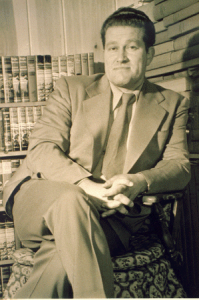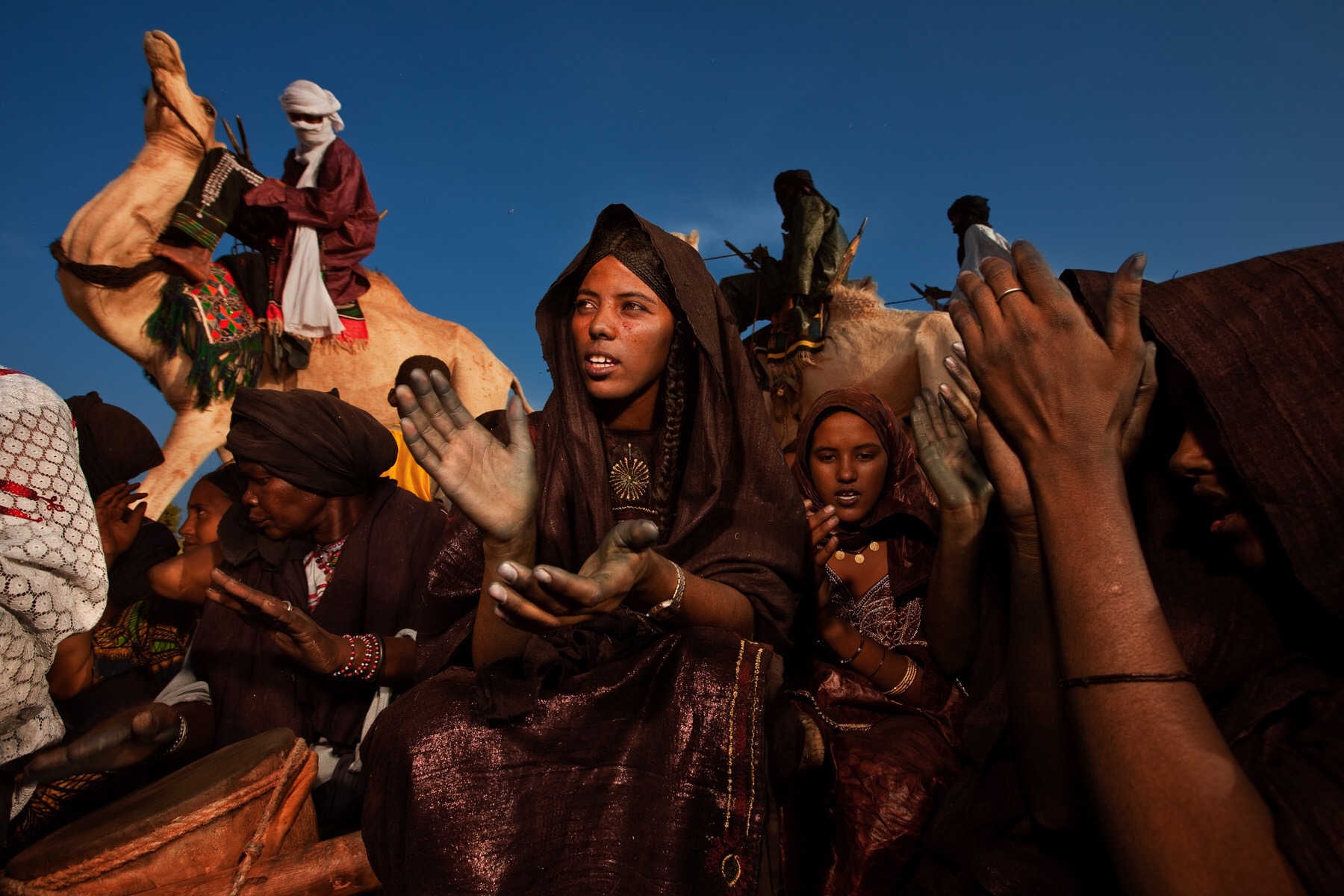Rothkopf has created an intentional reincarnation of C. Wright Mills’ old Power Elite, but without Mills’ ideological foolishness. With his unusually broad experience in business, journalism, Wall Street, the American military, the Intelligence community, and government ― but never in a position where he was sublimated into, or identified with the circles of power ― Rothkopf is in an ideal position to give a realistic description of the roughly six thousand people who exercise the most power and influence on our globe. I don’t always agree with his analysis, and his conceptual categories are thoroughly conventional, but the book is essential for anyone who wants to form a plausible picture of how the world works. This has always been the aim of my researches. Most things in this book ring true, as far as I’m concerned.
Category Archives: BS - Reading 2008 - Page 2
16778. (David Rothkopf) Superclass: The Global Power Elite and the World They are Making
16770. (Benjamin Isakhan) The Post-Saddam Iraqi Media
This very interesting article in Global Media Journal [7 (13), 2008] by an Australian scholar points out that whatever the motives, or the outcome of the invasion of Iraq, it resulted in the sudden emergence of an active and free press in that country. Taking us on a tour of its vitality and evident popularity, he points out that this development will profoundly affect the future of the Middle East. And he is keen on its potential for overturning the clichés and cartoon-analysis that outsiders have long imposed on the complexities of that region. Rich in facts and detail.
Tuesday, November 4, 2008 (just after midnight) — To a Historian
And I did indeed read some Whitman, just at midnight. The first section of Leaves of Grass, “Inscriptions”, which of course starts with “One’s-Self I Sing”, and contains familiar poems such as “In Cabin’d Ships at Sea”, “I Hear America Singing”, “Starting from Paumanok” and the superb “Song of Myself”. But among them I relished one rarely cited, and which I had forgotten: “To a Historian”. To someone like me, who considers himself both a historian and a Science Fiction writer, this one is particularly appropriate.
You who celebrate bygones,
Who have explored the outward, the surfaces of the races,
the life that has exhibited itself,
Who have treated of man as the creature of politics,
aggregates, rulers and priests,
I, habitan of the Alleghanies, treating of him as he is in
himself in his own rights,
Pressing the pulse of the life that has seldom exhibited itself,
(the great pride of man in himself,)
Chanter of Personality, outlining what is yet to be,
I project the history of the future.
16732. (Terje Anderson) [in blog Daily Kos] Why We Stand in Line to Vote — A Historical Photo Essay [article]
Steve Muhlberger’s blog Muhlberger’s Early History linked to this moving photo article in the Daily Kos. For decades I’ve argued with people who thought they are being clever by not voting, and who subsequently wondered why they woke up in a world controlled by religious wackos and sleazy haters of freedom. Well, it’s because they never showed up at the polls, and the haters of freedom made sure their minions did. The lame logic behind the “don’t vote, it only encourages them” notion was basically that, if your only weapon is a bow and arrow, and you are being hunted by a someone with a gun, you should throw away the bow and arrow. The Democratic Party may not be a shining bastion of reason and freedom, but at the moment, the difference between it and the Republican Party is roughly equivalent to the difference between the post-WWII democracies and the Soviet Union. Remember the nitwits who, back then, liked to talk as if the two were “morally equivalent”? History has turned them into jokes. Right now the last thing in the world a sane human being can claim is that the Democratic and Republican parties are morally equivalent. The contrast is stark and irrefutable. Read more »
16731. (Chief Electoral Officer of Canada) A History of the Vote in Canada
It’s a bit of a surprise that the Office of the Chief Electoral Officer would produce a charmingly written and graphically pleasing book — aren’t those folks supposed to be soulless, humourless bureaucrats? And it presents the history of the franchise in Canada with systematic scholarship. It begins by mentioning the representative institutions of Native Canadians, and gives a brief discussion of the elected assembly that existed in New France, the Conseil de Québec, between 1657 and 1674, only to be suppressed by the infamous French Secretary of State, Jean-Baptiste Colbert, who firmly reprimanded Frontenac for his “innovation”. Most interesting to me were the detailed histories of the franchise in all the British North American colonies before Canadian Confederation. Read more »
READING – OCTOBER 2008
16616. (Marion Zimmer Bradley) The Mists of Avalon
16617. (O. R. Gurny, tr.) Hittite document: The Annals of Ḫattušili III
16618. (Steve Muhlberger) [in blog Muhlberger’s Early History] The World Turned Inside
. . . . . Out [article]
16619. (Karen Joy Fowler) Wit’s End
16620. (Chris Wood) Dry Spring: The Coming Water Crisis in North America
16621. (David Rothkopf) 9/11 Was Big. This Is Bigger [article]
16622. (Andrew J. Bacevich) He Told Us to Go Shopping. Now the Bill Is Due. [article]
16623. (Richard Dawkins) The God Delusion
Read more »
16710. (August Derleth) Return to Walden West
This is a minor masterpiece by a neglected American novelist and essayist who is better known as the editor and advocate of H. P. Lovecraft than for his own work. It is firmly in the tradition of Thoreau’s journals, and simultaneously in that of Sherwood Anderson’s Winesburg Ohio, though his beautifully styled evocations of desperate lives don’t have the bitterness that Anderson’s had. Derleth’s feeling for nature, both the human kind and the animals and plant kind, is intense and meticulously observant. His prose is so precise and natural that you don’t hear it as another’s voice, but as your own thought. It’s one of those books that you read with profound pleasure on a quiet night, with an animal snoozing nearby and a single malt at your elbow.
16632. (Nancy M. Wingfield) Flag Wars and Stone Saints: How the Bohemian Lands Became Czech
Ethnic nationalism is one of the most diseased and obnoxious ideas contrived by human beings, rivaled only by Marxism and religious fanaticism in its potential for creating human suffering. The stage was set for the horrors of the twentieth century by the passionate ethnic hatreds of the 19th century. It was in this era that collective loyalties among Europeans shifted from obsessions with God to obsessions with Race and Nation. And it was in this era that most of the “national identities”, which now seem so fixed, were concocted.
Read more »
(Hélène Claudot-Hawad) “Éperonner le monde” ― Nomadisme, cosmos et politique chez les Touaregs
Ténéré daféo nikchan .… yes, I’m back there again. The smells, the sounds, the wind. This collection of articles, written over a decade by a leading authority on the politics of Saharan nomads, was an absolute delight for me to read. It deals with the very people (not just the same ethnic group, but the particular segment of them, the kel-Aïr of Niger) who first awakened me to the nature of proto-democratic institutions. I read these articles with a tremendous wave of nostalgia. When as a naive toubab, I came to that part of Africa, many years ago, I had been led by the small amount of literature available on the subject to believe that the Tuareg represented a strictly stratified society, rigid and traditional — the last place to look for any kind of proto-democratic elements. But what I saw confused me, and ultimately enlightened me: a maze of conciliar institutions, both formal and informal, embodying all the elements from which democratic theory evolved in less exotic places. Good and bad things, but the same stew-pot of good and bad from which our best institutions ultimately evolved. I also saw that much that had been written or assumed was blind to this, shaped by presumptions that desert nomads where either chaotic beings without “complex” political institutions, or a rigid, changeless hierarchy in which discussion, representation, and equality played no part. My eyes told me that neither presumption was valid. It was this experience that got me interested in the issue of the universal roots of democratic practice, and triggered decades of reading. Sadly, when Steve Muhlberger and I began our first work on the subject, there was no published work on the Tuareg usable for our purpose. This book, had it existed then, would have been a centerpiece of our discussion. Read more »
READING – SEPTEMBER 2008
(Peter Bakker, et al.) Basque Pidgins in Iceland and Canada:
. . . . [——] (Gidor Bilbao) Glossaria Vasco-Islandica-ren aurkezpen gisakoa [preface]
. . . . 16445. (Jose Ignacio Hualde) Foreword to Glossaria duo Vasco-Islandica [preface]
. . . . [——] (Nicolaas G. H. Deen) Glossaria duo Vasco-Islandica [text in Basque] [article]
. . . . 16446. (Jose Ignacio Hualde) Icelandic Basque Pidgin [article]
. . . . 16447. (Peter Bakker) “Las lengua de las tribus costeras es medio vasca” ― Un pidgin
. . . . . . . . . vasco y amerindio utilizado por europeos y nativos americanos en Norteamérica,
. . . . . . . . . h. 1540‑h. 1640. [text in Spanish] [article] Read more »

